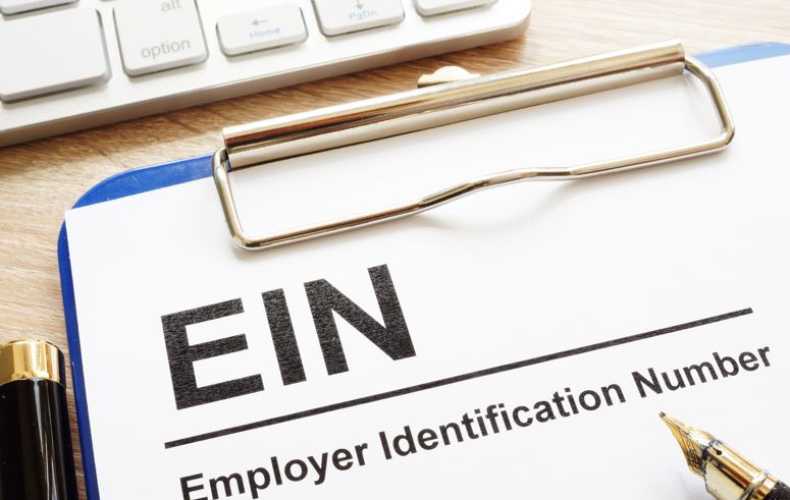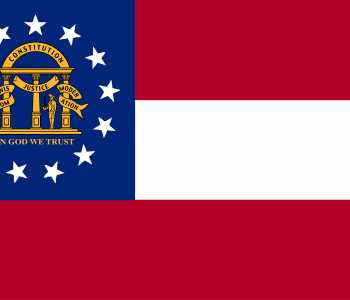How To Apply for an EIN

Before an individual can apply for an EIN, they must first understand its meaning and why it is necessary. An Employer Identification Number or EIN is a unique 9-digit number.
The IRS uses EINs to identify business entities and tax purposes. Another name for the EIN is Federal Tax Identification Number or FEIN.
What is an EIN?
An employer identification number (EIN) is a unique 9-digit federal tax ID number assigned by the Internal Revenue Service. It is used to identify employer tax accounts.
EINs are required for businesses with employees who operate as a corporation, partnership, or Limited Liability Company (LLC). These entities are taxed the same as corporations.
You may not need one if you are a sole proprietorship or a single-member LLC without employees. The owner's social security number is used to identify the business. You may also need an EIN for a tax-deferred pension plan.
Three steps to get an EIN
You should apply for an EIN as soon as your business is launched. However, it's a good idea to do so before tax season or when you need to submit a loan application. You can apply through the IRS at no cost. However, companies that charge to do so should be avoided.
1. Determine Your Eligibility
To apply for an employer identification number, there are two requirements.
Your principal business must be located within the United States or U.S. territories.
A valid taxpayer identification number (such as a Social Security number) must be provided by the person applying.
The first step in determining your principal business is identifying the primary income-generating activity (e.g., consultant, engineer, doctor) and your physical location. You don't have to provide services in the U.S. to be eligible. You can apply as long as your principal business activities are in the U.S.
The applicant does not have to be the owner of the business. The applicant may be a partner, officer, or director of the company. The IRS allows any responsible person to apply. This is defined as anyone who oversees the company's finances. A responsible party must sign Form SS-4 and complete the third-party designee section.
2. Gather All The Information You Need
Start by reading the PDF version of Form SS-4: Application to Federal Employer Identification Number. This will allow you to ensure you have all required information, including names, addresses, and the Social Security Number of the responsible party.
It is essential to identify the type of business entity you have. If your company is a corporation, you will need to indicate the country or state where your business was incorporated. Make sure to know how many members you have in a multi-member LLC.
You will also need the following information to complete your application:
The primary reason you apply (e.g., to launch a business, for banking purposes, to hire employees, etc. You can.
When was your business founded or acquired?
Include a description of the primary industry and your primary product/service.
The highest number and type you anticipate hiring in the next 12 months.
Your business paid the first date wages.
Closing month in your accounting or fiscal calendar year (usually December if you're a calendar-year taxpayer).
If you pay $4,000 in wages per calendar year, you can file an annual employer tax return instead. This section of the application should be discussed with your accountant.
You can ensure that you have all the necessary information before starting the online application process by reviewing and filling in Form SS-4.
3. Apply online for an EIN
There are several options available to apply for an EIN from the IRS.
Online, fax, or mail are all options for applying for an EIN. Foreign applicants who wish to immigrate to America for business reasons can apply via phone.
Online applications are the fastest and easiest way to apply for U.S.-based applicants.
Information you will need:
- Address for business
- Name of a principal officer, manager, or owner
- The number of members in an LLC
- Type of business, the primary activity
- The date that the business was founded or acquired
- Closing month in the entity's accounting years
- Expected number of employees to be hired
- Contact information
The IRS' online EIN assistant provides an easy-to-follow process for the online application. You can apply online from Monday to Friday, 7 a.m.-10 p.m. EST.
The assistant will guide you through the application process and provide links to other resources and information. For security reasons, you will be automatically logged out after 15 minutes. Each responsible individual can only apply for one EIN per day.
You will instantly receive your EIN if you submit your online application to the IRS. Fax applications can take up to four business days for processing. For mailed applications, it takes four weeks.
If you want to apply by fax or post, you must complete Form SS-4.
An EIN is necessary for several reasons:
- To open a business bank account.
- File income taxes / returns
- Hire employees
- Track payroll taxes.
- Applying for licenses
- Filing for permits
Applying for an Employer Identification Number
With a better understanding of what an EIN is for, owners can start the application process.
Individuals applying for an EIN must have a valid Taxpayer Identification Number (TIN). Owners will need to provide a Social Security Number (SSN) to be eligible. Individuals can also use their Individual Taxpayer Identification Number (ITIN). Otherwise, they cannot apply.
Having a Taxpayer Identification Number or SSN is not the only item owners need for EIN eligibility. The geography of the business also plays a role in the application process. The location of the business structure must be in the United States or U.S. Territories.
Lastly, a daily limitation exists when applying for an EIN. Each party can only apply for one EIN per day.
Summary
Whether a business owner’s legal residence is in Cincinnati, Chicago, or California, it does not matter. To avoid any trouble from Internal Revenue Service (IRS), the owner needs to ensure their business is legal and has the proper paperwork. As long as they have a business entity in the United States or U.S. territories with employees, they must have an EIN.
Frequently Asked Questions
What is a responsible party?
The person who owns or controls the business entity is called the “responsible party.†Also known as the true principal officer. This applicant can only be either a government entity or individual (or natural person), not an entity.
Do all businesses need an EIN?
Only businesses that operate as a corporation, Limited Liability Company (LLC), or in partnership with employees need an EIN. Business entities taxed as a corporation need to get one, but not all businesses need to apply for an Employer Identification Number (EIN). Thus, if the company is a sole proprietorship or single-member LLC and has no employees, an EIN is unnecessary. The IRS uses the owner’s Social Security Number (SSN) to identify these business entities.
What is the EIN application process?
- Information needed:
- Business legal name
- Applicant’s legal name
- Trade name (if applicable)
- Business mailing address
- Name of the principal officer, general partner, grantor, owner, or trustor. The IRS refers to this individual as the “responsible party.â€
- The Tax ID Number of the “responsible party.†(i.e., SSN, ITIN, or EIN) This individual controls the applicant entity and the disposition of its funds and assets.
Filing for Tax-Exempt Status?
When does a business need to apply for a new EIN?
How Many EINs is a business allowed?
The number of Employer Identification Numbers an owner can have depends on their number of businesses. If only one business entity exists, the owner can have only one EIN.
Do I ever have to update my EIN?
What happens if my EIN is lost?
What is the cost of an EIN?
Although many companies charge for an EIN, you can file with the Internal Revenue Service (IRS) for free. It is also straightforward.
Do I need an EIN for every business?
Every business should have an EIN. However, sole proprietors can only have one EIN regardless of how many companies they own.
Is an EIN required for an LLC?
Sometimes. If the LLC is a single-member entity, it will be registered as a disregarded entity. An EIN is required for LLCs set up to be taxed like a corporation or partnership.






